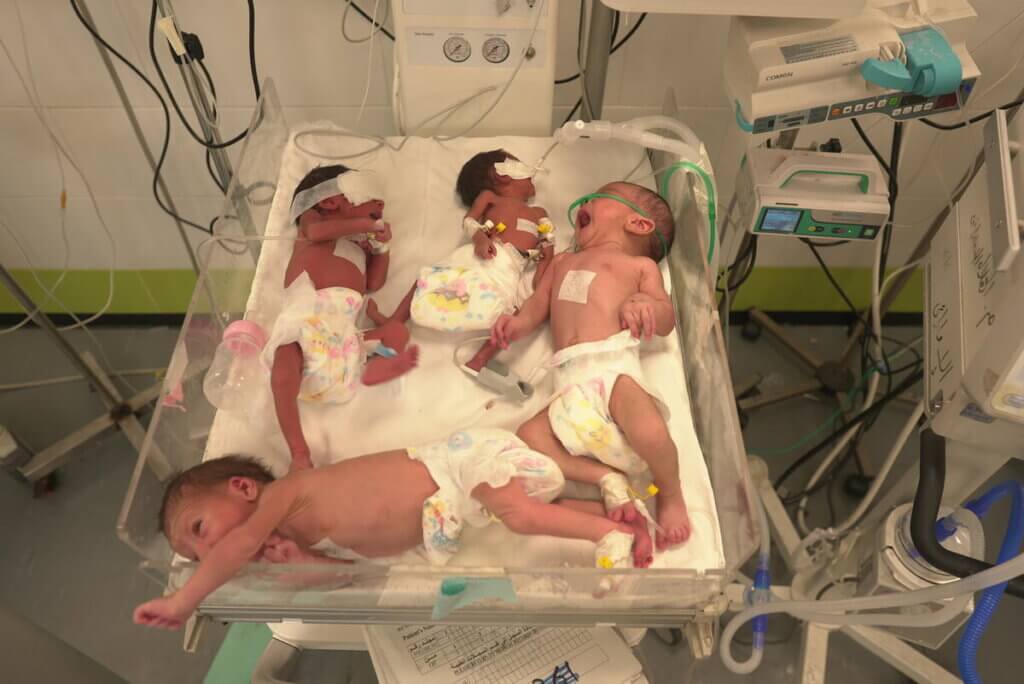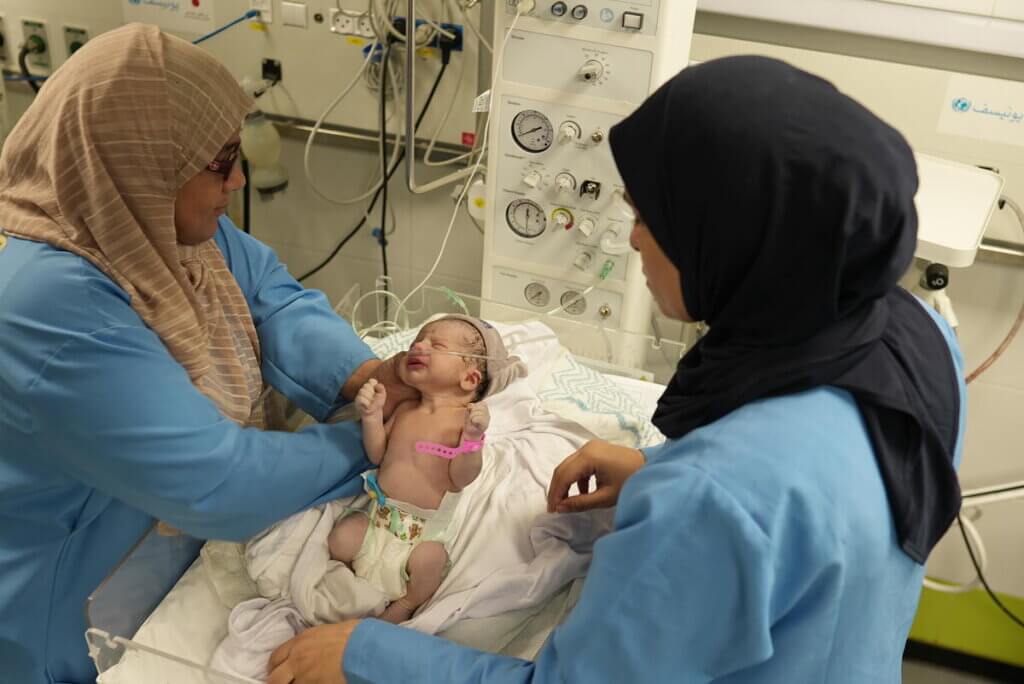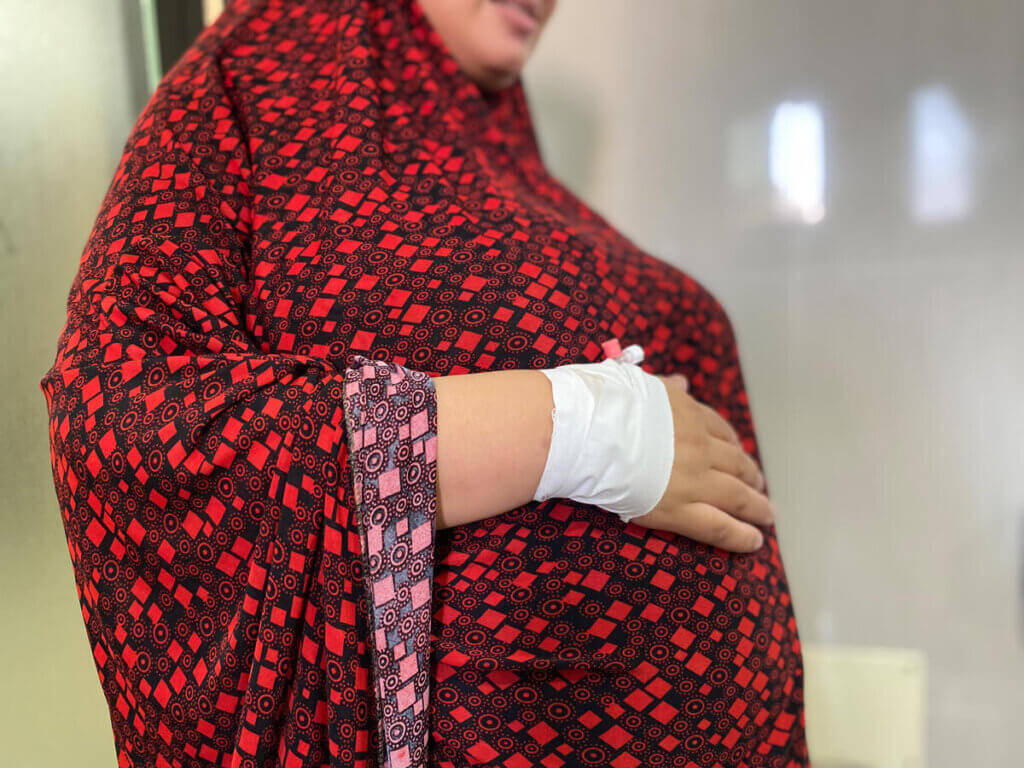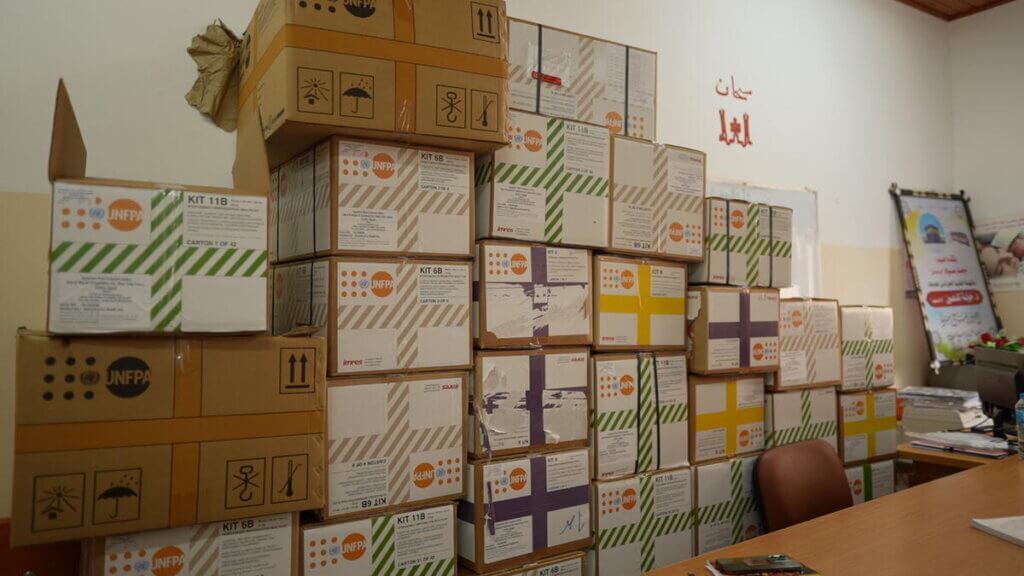
Six months and two days ago, terrorist attacks in Israel escalated a decades-long conflict to a full-on humanitarian disaster for the people of Gaza. Now, at the end of the holy month of Ramadan, 1.1 million people in Palestine are projected to face catastrophic levels of food insecurity.
In the last six months, we have seen an unprecedented amount of devastating loss and violence in Gaza. Hospitals have been subject to attacks, women and children have been disproportionately killed, and access to basic necessities such as food or water have been heavily restricted.
6 MONTHS OF CRISIS
Here is what we currently know about the state of Gaza:
– More than 32,000 people have already died in this conflict, 70% of whom are women and children.
– Babies are dying from lack of ventilators, incubators, and from having too little to eat. Many newborn infants are too weak to even cry.
– Over 690,000 women and girls are of menstruating age but do not have consistent access to menstrual products.
– Only THREE maternity hospitals remain operational in the Gaza strip, and they are currently overwhelmed with patients.
– Famine is imminent for an estimated 15,000 pregnant women in Gaza and countless others.
– 5,500 women will give birth in Gaza in the coming month – and essential supplies such as anesthesia for cesarean sections (c-sections) are in critically short supply.
With Ramadan now over, Muslims around the world will begin celebrating Eid-al-Fitr – a holiday dedicated to breaking the month-long fast and spending time with loved ones. But for the 2.2 million in Gaza, their starvation will see no break during this season. Untold numbers of people may not even live to see the end of the holiday.

THE HEALTH SYSTEM NEARS TOTAL BREAKDOWN
“We have reached a stage where we have to choose which babies will live,” Dr. Al-Shaer shared with us from one of the last remaining maternity wards in Gaza. At Rafah’s Al-Helal Al-Emirati Maternity Hospital, 77 babies share just 20 incubators. Doctors like Al-Shaer are doing everything in their power to save as many lives as possible, but the harsh reality is that they are limited by their own resources.
“There are not enough incubators, so there are four or more babies sharing each one… Most of them unfortunately die, and this is very distressing for us as a team. It is a tragic situation.”
But babies are not the only ones who have suffered from the strain that the attacks have placed on Gaza’s health system. With anesthesia supply extremely limited, doctors are having to perform c-sections, amputations, and other surgeries with partial doses.
For women like Raghan who are urgently in need of c-sections, the lack of anesthesia is especially harmful. “I am in my tenth month, they said I need a Caesarean-section. But there are so many cases, so I’m waiting my turn,” she shared with us. “The doctor says there is no anesthesia. They can’t give women the full dose.”

UNFPA’S HUMANITARIAN RESPONSE
The horrors of the crisis in Gaza cannot be overstated – but thanks to the ongoing aid of American supporters, we have been able to make a difference for hundreds of thousands of women and girls in Gaza.
Of all births that have occurred in Gaza, we have supported more than half of them. We have provided women and girls with over 134,000 Dignity Kits, which include critical supplies such as menstrual products and hygiene products such as soap and detergent. We are delivering lifesaving medications, including anesthetics, to the few hospitals that remain functioning. And we have been able to operate three maternity mobile health teams to reach pregnant women in Rafah’s sprawling tent city.

If there is a glimmer of hope for the millions of displaced people in Gaza, it is due to the generosity, passion and courage of our supporters, our midwives and doctors, and all the staff who are moving mountains to get lifesaving resources into Gaza. We are reaching women and girls during one of the most serious humanitarian crises of our time, and it is because we have all come together.
After all this loss, peace must prevail. We condemn the violence in Gaza, the West Bank, and Israel and echo the UN Secretary-General’s call for an immediate ceasefire, the release of all hostages by Hamas, and rapid and unimpeded humanitarian access.